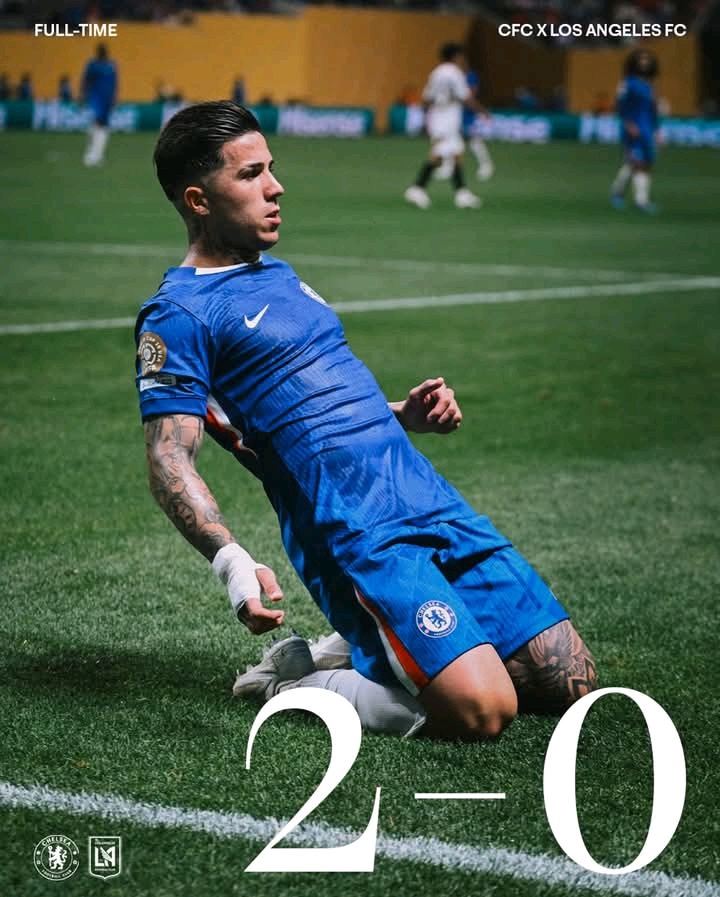Chelsea began their Club World Cup campaign with a 2–0 win over Los Angeles FC, but the match at Atlanta’s Mercedes Benz Stadium drew more attention for its hauntingly empty stands than for the action on the pitch.
Despite the venue’s 71,000 capacity, only 22,137 fans were recorded in attendance, barely filling the lower and middle tiers. The upper deck was closed entirely. The kickoff time, 3pm on a Monday, didn’t help, and neither did high ticket prices, which plummeted just before and during the match, some selling for as low as £26 online.
Chelsea manager Enzo Maresca acknowledged the awkward atmosphere, saying, “It was strange, the stadium was almost empty. But we adapt. That’s our job.”
FIFA had expected over 26,000 fans, but reality painted a different picture. Even with Chelsea’s global appeal and LAFC’s vibrant 150 member fan group making some noise, most of the venue echoed with silence. Many Chelsea supporters only came alive during the goals and major moments.
This version of the Club World Cup, now a bigger and supposedly better tournament, is being treated as a dry run for the 2026 World Cup, which will span the US, Canada and Mexico. But if Monday’s turnout was any indication, FIFA may need to rethink its strategy, starting with scheduling and pricing.
Tickets, controlled by dynamic pricing, were seen dropping as kickoff approached. At one point, FIFA partners were reportedly offering four tickets for the price of one to students in Miami.
Doug Roberson of the Atlanta Journal Constitution blamed poor timing more than lack of interest in soccer. “It’s a Monday afternoon. People work. And this tournament is still unfamiliar to most Americans,” he explained.
Jonathan Tannenwald of the Philadelphia Inquirer pointed the finger at FIFA’s marketing or lack of it. “You can’t just drop a tournament in and expect people to show up. No local organizing body, no real push. That’s on FIFA.”
This wasn’t Chelsea’s first time playing at the venue. Just two years ago, they nearly sold out the same stadium in a pre season friendly. And Atlanta United, the stadium’s regular MLS tenants, average over 44,000 fans per game. Clearly, football fans exist, just not for a lukewarm Monday group stage match with inflated prices.
LAFC coach Steve Cherundolo didn’t read too much into the empty seats but hinted at regional interest differences. “Maybe LA loves football more than Atlanta,” he said.
The larger concern is what this means for the 2026 World Cup. FIFA may be facing early warning signs. Phil McNulty, BBC Sport’s chief football writer, called the half empty stadium an embarrassment and a grim look for a tournament with such high hopes.
Still, there were bright spots. Over 55,000 watched Boca Juniors vs Benfica later that day at Miami’s Hard Rock Stadium. PSG’s thrashing of Atletico Madrid drew more than 80,000 fans. But other matches have struggled, with 21,152, 30,151 and 46,275 attending earlier group games.
The biggest crowds seem reserved for recognizable clubs, marquee matchups or cities with stronger football culture. Real Madrid’s upcoming match in Miami is almost sold out with resale markets booming.
The early data suggests FIFA has a serious branding issue on its hands. Whether apathy continues or fades as the tournament progresses will depend on marketing, matchups and common sense around ticket access.
Until then, scenes like Chelsea vs LAFC, thousands of empty seats and awkward silence, might be the new norm in this revamped global club competition.
Should we send you latest update about your favourite sports and team?
Enter you email in the box below and hit the subscribe button to join our teaming 876+ sports community.
